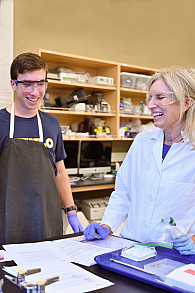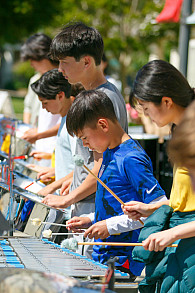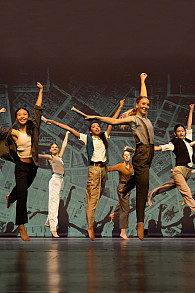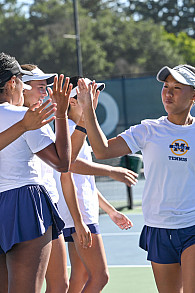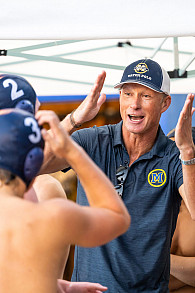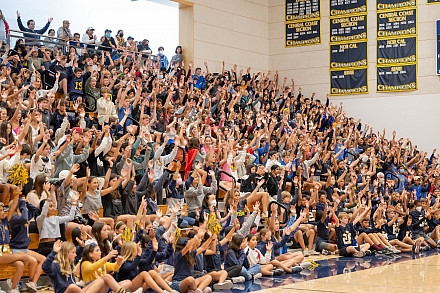- Arts
- Academics
-
Athletics
- Athletics Overview
-
Upper School Teams
- Baseball - Varsity
- Baseball - Junior Varsity
- Basketball - Boys Varsity
- Basketball - Boys Junior Varsity
- Basketball - Boys Freshman
- Basketball - Girls Varsity
- Basketball - Girls Junior Varsity
- Cross Country
- Flag Football - Girls
- Football - Varsity
- Football - Junior Varsity
- Golf - Girls Varsity
- Golf - Boys Varsity
- Golf - Boys Junior Varsity
- Lacrosse - Boys Varsity
- Lacrosse - Boys Junior Varsity
- Lacrosse - Girls Varsity
- Lacrosse - Girls Junior Varsity
- Soccer - Boys’ Varsity
- Soccer - Boys’ Junior Varsity
- Soccer - Girls Varsity
- Soccer - Girls Junior Varsity
- Swimming
- Tennis - Varsity Boys
- Tennis - Boys Junior Varsity
- Tennis - Girls Varsity
- Tennis - Girls Junior Varsity
- Track & Field
- Volleyball - Varsity
- Volleyball - Junior Varsity
- Volleyball - Freshman
- Water Polo - Boys Varsity
- Water Polo - Boys Junior Varsity
- Water Polo - Girls Varsity
- Water Polo - Girls Junior Varsity
-
Middle School Teams
- Baseball - Middle School
- Basketball - Boys Middle School
- Basketball - Girls Middle School
- Cross Country - Middle School
- Flag Football - Middle School
- Lacrosse - Boys Middle School
- Lacrosse - Girls Middle School
- Soccer - Boys Middle School
- Soccer - Girls Middle School
- Swimming - Middle School
- Tennis - Middle School
- Track - Middle School
- Volleyball - Middle School
- Athletics Philosophy & Values
- Athletics Resources
- Camps & Clinics
- Alumni Athletes
- New to Menlo Athletics?
- Student Life
- Support Menlo
- Admissions
- Calendar
- Resources
MENLO SCHOOL • SINCE 1915

Chart your course.
Course Selection
We offer a wide array of courses to spark students’ wonder and deep engagement. What will you choose?
What Courses are Offered?
Selecting Your Courses
We encourage our students to try something new as well as delve deeper into their passions. As you explore our course offerings, keep in mind that high school should be a chance to broaden yourself, take risks, and discover what you love.
There are some things we encourage you to keep in mind as you select courses:
- Try to make a multi-year plan so that you are sure to attend to the requirements below and give yourself opportunities to pursue your interests and passions.
- Just because you can does not mean you should. Students often feel they have to take as many challenging courses as possible; that is rarely a recipe for a happy year.
- Think about all the other things (sports, arts, out-of-school responsibilities) that will be on your plate as you select courses. Your schedule should promote balance and allow for a good night’s sleep.
Please see the following sections below for specific details about Menlo’s graduation requirements, frequently asked questions about the Upper School course enrollment process, and things to think about regarding course selection and the college admissions process.
Menlo Graduation Requirements
- Creative Arts – 4 semesters required, and students need to take a yearlong Arts class in either freshman or sophomore year. All freshmen will earn one semester of Arts credit for their Freshman Arts Experience (FAX) class.
- English – 4 years including both semesters of senior year
- World Language – 3rd level, including 2 years minimum taken consecutively in Upper School
-
History – 3 years, including
- Modern World History
- U.S. History or U.S. History (H)
- Junior-Year History electives (one elective per semester)
- Mathematics – 3 years, including Algebra 2
-
Science – 3 years
- Conceptual Physics or Physics 1
- Chemistry or Honors Chemistry
- Biology
- Freshman Seminar
-
Physical Education – 4 semesters
Participation for one season in a school sport and the Wellness portion of Freshman Rotation each count for one semester of PE credit. If a student has already fulfilled the Creative Arts requirement, a year of dance can count for two PE credits. Freshmen can earn up to three credits in their freshman year. From sophomore year on, the maximum number of PE credits a student can earn per year is two. PE credits can also be earned by enrolling in a Menlo School wellness program or for pre-approved outside activities Menlo does not offer. Outside activities can earn a maximum of two credits. See the Athletics Handbook for more details. -
Community Engagement
Students must earn 10 community engagement credits each school year and have at least three unique experiences. Credits are earned by students writing reflections on Fortress after participating in approved types of experiences with and outside of Menlo. Please see the Community Engagement section of Menlo’s website for more information. - MTerm – Grades 9-11
- Life Beyond Menlo – Grade 12
Course Selection & College Admissions
While colleges like to see students stretch themselves with a rigorous course of study, they do not use specific formulae or have specific requirements. Menlo students should challenge themselves in a healthy way by taking as rigorous a course load as they can without sacrificing their performance and commitments to their lives outside of the classroom, including a good night’s sleep. Since the appropriate academic curriculum varies for each individual, students should take a balanced load of courses with an appropriate level of challenge, and especially pursue particular intellectual interests.
Colleges consider the rigor of a student’s schedule in the context of their school’s offerings, and taking a more rigorous course load can help students distinguish themselves in the college admissions process. Keep in mind that rigor is measured in many ways: the number of classes taken, the types of classes taken, concentration on specific interests and the breadth of classes taken. No one course should be taken solely because it “looks good for college admissions.”
Colleges look for students who are intellectually energized, engaged learners; admission officers do not necessarily like to see students take the “hardest” academic programs, but rather the programs that most engage them. For example, if a student is a budding historian, colleges may appreciate seeing a range of AP and non-AP History electives and will understand if that student ends his or her course of study in another subject to make room for them. Also, students overwhelmingly report that they are happier and more engaged when they take classes that genuinely interest them, as opposed to taking classes they feel they “should” take.
Because there are so many elective choices by junior and especially senior year, students often need to make the choice to stop certain programs of study while still completing all of Menlo’s graduation requirements. For instance, it could make sense for a student who is headed towards majoring in engineering in college to take extra math, science, or computer science classes and to close his or her study of history, world language, or the arts. There is limited time in the schedule, and colleges understand this. Rather than worrying about what’s not in a specific student’s curriculum, colleges can be impressed that a student has passionately pursued a particular area. In addition, Menlo’s graduation requirements meet or exceed the UC admissions criteria in all areas.
Special Issues with UC Admissions and Menlo Courses:
Menlo’s graduation requirements meet or exceed the UC admissions criteria in all areas. The University of California gives honors credit to all of Menlo’s senior English courses, whether or not Menlo considers them honors. The UC system also gives honors credit to Menlo’s regular (non-AP) U.S. History class; however, Menlo does not give honors credit for the class.
Menlo gives honors credit to the following courses, though the UC system does not: Advanced Topics in Computer Science (H), Algebra 2 (H), Analytic Geometry and Algebra (H), and Applied Science Research (H).
 MENLO SCHOOL Since 1915
MENLO SCHOOL Since 1915
